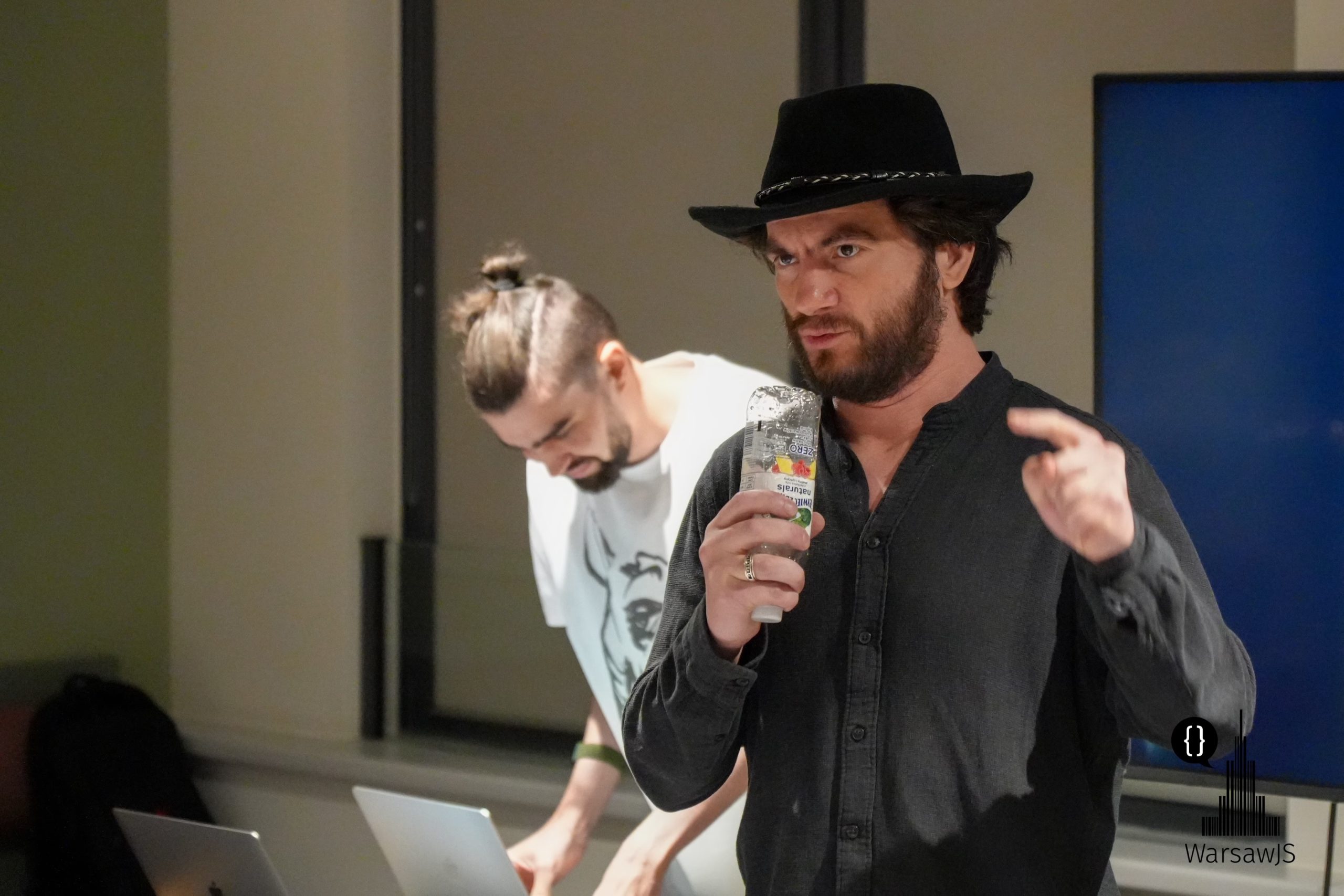Everyone who regularly attends WarsawJS and other tech conferences knows this moment. The speaker finishes their presentation, looks around the room and utters the sacred words: “Any questions?”. Subsequently, every participant’s internal struggle begins.
Conference Theater in Three Acts
Act 1: Speaker encourages: “There are no stupid questions!”
Act 2: Someone asks if TypeScript is a programming language
Act 3: The silence in the room is so loud you can hear someone breathing
Consequently, here we get to the heart of it – of course there are stupid questions! The famous saying “there are no stupid questions, only stupid answers” is a conference white lie. In reality, it’s purely persuasive, not substantive. Conference organizers use it to encourage participants no matter what.
Examples of Questions That Spam Conferences:
- “Is React better than Vue?” – asked after a presentation about WebAssembly. Zero connection to the topic, the questioner just wants to start their favorite framework war.
- “Well, in my company we do it differently…” – followed by a 5-minute monologue about how the questioner does something completely different. Not a question at all, just self-promotion.
- “Can this be used for blockchain?” – the universal spam question for every presentation since 2017. Recently replaced with “What about AI?”.
- “Can you repeat what was on slide 3?” – when the questioner was scrolling Twitter throughout the entire presentation.
- “I have a question consisting of 4 parts…” – spoiler: none of them are related to the presentation, and the questioner wants to show they also know something.
The Real Problem: Ego and Disrespect
There’s a crucial difference between:
- An honest question from someone who didn’t understand something
- A question asked just to take the floor
While the first builds value, the second destroys it. Moreover, when someone wasn’t paying attention and asks about things already explained – that’s not ignorance, it’s lack of respect. Ultimately, it wastes the time of 50 people in the room.
At conferences, I’ve observed two types of ego:
- Silent-ego – afraid to ask so as not to look stupid
- Loud-ego – must ask a “question” that shows their knowledge
Unfortunately, both are a problem. First, the silent type doesn’t take advantage of learning opportunities. Meanwhile, the loud one takes that opportunity away from others.
However, the best colleagues? People who can ask a simple question and admit: “actually, my question wasn’t essential, but I wanted to make sure.” Zero ego, pure curiosity.
Because ego has real mass. Additionally, working with people with big egos is very hard – whether it’s those who are afraid to admit ignorance, or those who must prove their knowledge at every opportunity.
The Moral for WarsawJS Participants
Next time you’re at a meetup or conference:
- Think through your question – does it actually relate to the presentation?
- Listen to the answer – don’t plan your next “question”
- Respect others’ time – if you have a long question, approach the speaker after the presentation
- Ask about what you really don’t know – not about what you want to show you know
After all, we’re all here to learn something. Instead of showing how smart we are, let’s leave that to LinkedIn.
PS. About Reputation Losses
As a side note – reputation damage caused by a stupid question can only be compensated by a smart observation. For instance, consider that question “if I ask ‘can I ask a question?’, have I already used up the number of questions I’m asking for?”. Although seemingly a meta-joke, it shows the absurdity of some conference rituals. Therefore, sometimes it’s worth taking the risk. Follow our WarsawJS blog for more!


